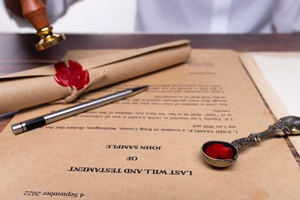In the UK, if the deceased has left a valid Will, it typically names an executor who is responsible for managing the estate and who will often know beforehand that they have been appointed. Everything a person owns when they die is known as their estate, it includes cars, properties, investments, jewellery, furniture, artwork, and other personal belongings; the executor's duties include gathering all significant assets and determining their worth, as well as ensuring that debts and taxes are settled before distributing the remaining assets to any beneficiaries.
It is important to note that not all estates require probate; this largely depends on the estimated value of the estate, if significant assets, money and/or property were owned by the deceased, then it is highly likely that a probate will be requisite. If an estate falls below a certain threshold or consists solely of jointly owned property or assets with designated beneficiaries, probate may not be needed. It is worth noting that you may still need to report the value of an estate even if it falls below the threshold, which is currently £325,000 in the UK. If property is left to the deceased children or grandchildren, this threshold can increase to £500,000. An estate valued at £5,000 or less will typically not be subject to probate, and most financial institutions will release funds less than this.
A grant of probate is necessary to give the executor legal authority to act on behalf of the estate. If the Will does not name an executor, a grant of letters of administration will need to be applied for by the personal representative. These documents confirm that the Will is valid and allows the executor the authority to access bank accounts, sell property, and carry out other essential tasks related to estate administration.
Obtaining probate valuations for all assets within the estate will be crucial when calculating the value to determine if there is an Inheritance tax liability. Reputable auction houses will be able to provide probate valuations for household goods and personal possessions while estate agents will be able to assist with property valuations. We highly recommend consulting with a Solicitor or Probate Specialist to assist with the probate process.
In summary, while having a Will simplifies many aspects of estate management and provides clear guidance on asset distribution, it does not have any significance when it comes to determining if a probate needs to be obtained. A grant of probate remains an essential step for executors dealing with substantial estates in order to fulfil their responsibilities effectively.

